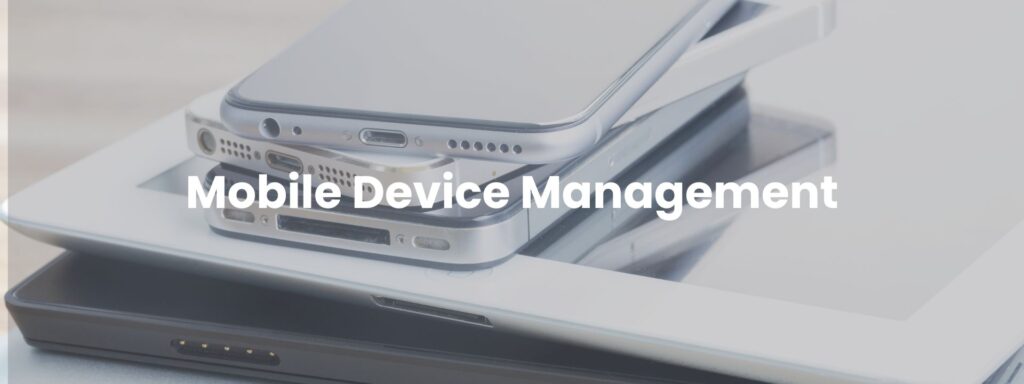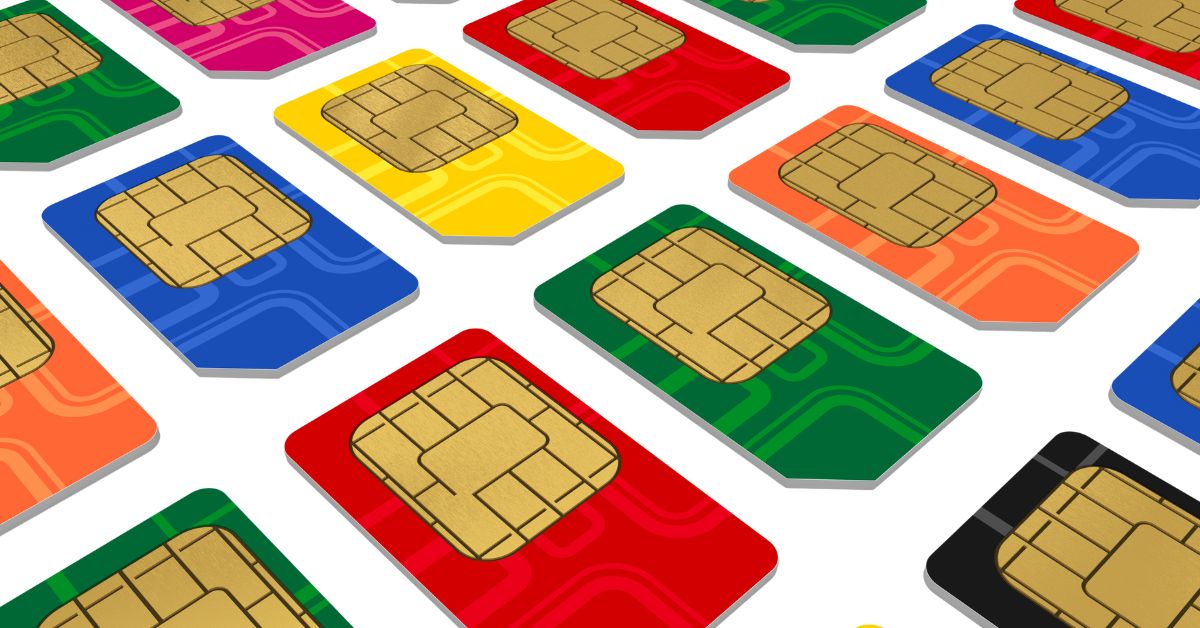In today’s digital-first world, businesses rely on mobile devices more than ever to keep their teams connected and productive. However, with this reliance comes increased risk – security threats, compliance challenges, and the need for effective management of company-owned and BYOD (Bring Your Own Device) policies. Despite these challenges, too few businesses are adopting Mobile Device Management (MDM) solutions, leaving them exposed to unnecessary risks and inefficiencies.
Handling a fleet of devices across multiple department disciplines and locations is no small task – it requires careful management and robust solutions. If your business is growing and mobile technology is integral to your operations, now is the time to understand the value of MDM. In this blog we explore why MDM is essential, how it aligns with cybersecurity standards like Cyber Essentials certification, and whether it provides the control your business needs.
What is MDM?
Mobile Device Management (MDM) is a security and management solution that allows businesses to manage, monitor, control, and secure mobile devices used by employees. MDM for businesses enables IT teams to enforce policies, manage updates, remotely wipe lost or stolen devices, and ensure compliance with security regulations.
With a variety of mobile security and productivity tools, MDM helps businesses keep their workforce agile while protecting both company and customer data across smartphones, tablets, and laptops.
The Business Benefits of MDM
Implementing Mobile Device Management (MDM) is essential for organisations looking to enhance security, improve efficiency, and ensure compliance in an increasingly mobile workforce. It’s a smart, strategic investment that streamlines operations and provides the control needed to support a flexible and secure work environment.
Enhanced Security
With data breaches and cyberattacks on the rise, mobile devices are a prime target for hackers. And with more employees working remotely or using their personal devices for work (BYOD), securing business data is a top priority. Business device security is a key concern, and MDM ensures that mobile devices are secure, protecting sensitive information from potential breaches. MDM helps protect sensitive business data by enabling features such as:
- Remote locking and wiping of devices if lost or stolen.
- Enforces security policies such as password requirements and encryption to protect data in transit and at rest.
- Helps defend against malware, phishing and other cyber threats with automatic security updates and patch management.
- Provides BYOD Security (Bring your Own Device)
Streamlined Device Management
With the rise of remote and hybrid work, businesses are relying more than ever on mobile devices to keep their teams connected. As this trend continues, organisations need robust solutions to manage their growing network of devices for seamless operations:
- Provides centralised control over all mobile devices, making it easier to monitor usage and enforce policies.
- Simplifies software updates and patch management to keep devices secure and up to date.
- Allows IT teams to configure settings and deploy apps remotely, reducing downtime.
- Simplifies Remote Device Management enabling IT teams to monitor and manage devices from a central location.
Improved Compliance
As businesses handle increasing amounts of sensitive data, compliance and regulations like GDPR, ISO and Cyber Essential standards becomes more important. MDM ensures that:
- Only approved apps and services are used on company devices.
- Security policies are enforced, reducing the risk of non-compliance.
- Audit logs and reports provide proof of compliance for regulatory requirements.
Increased Productivity
Ensuring employees can work efficiently and securely from anywhere with seamless access to company resources is vital for boosting productivity:
- Quick onboarding of new employees with pre-configured devices.
- Secure access to business applications, files, and collaboration tools.
- Enables employees to work securely from anywhere without compromising company data
- Prevention of distractions by restricting non-business apps.
- Reduces time spent on manual IT tasks by automating device enrolment, app installations and updates.
Cost & Resource Savings
Managing associated mobile costs is crucial and MDM can help reduce expenses by:
- Minimising the financial impact of data breaches and lost devices.
- Reducing IT workload by streamlining device management processes and manual processes.
- Reducing inefficient manual processes.
MDM and Cyber Essentials Certification
Since its launch in June 2014, Cyber Essentials certification has seen a steady growth in adoption, reflecting the increasing recognition of robust cybersecurity measures among UK businesses. It is also becoming a key requirement for businesses bidding on contracts, particularly within the public sector and large enterprises. MDM can play a vital role in achieving Cyber Essentials by ensuring:
- Secure configuration of devices.
- Access controls and authentication policies.
- Regular software updates and vulnerability management.
By implementing MDM, your business not only strengthens its security posture but also enhances its credibility when bidding for contracts and securing new business opportunities.
Why Businesses Should Act Now
Despite the clear benefits, many businesses still operate without an MDM solution, leaving themselves open to security breaches, compliance failures, and productivity bottlenecks. With cyber threats evolving rapidly, delaying MDM adoption is no longer an option.
Investing in an MDM solution now will not only protect your business but also give you a competitive edge when bidding for contracts that require compliance certifications.
Get Started with MDM Today
If you’re ready to take control of your mobile security and compliance strategy, our team can help. We offer tailored MDM solutions to fit your business needs, ensuring seamless integration and maximum protection.
Contact us today to discuss how MDM can safeguard your business and support your growth.





